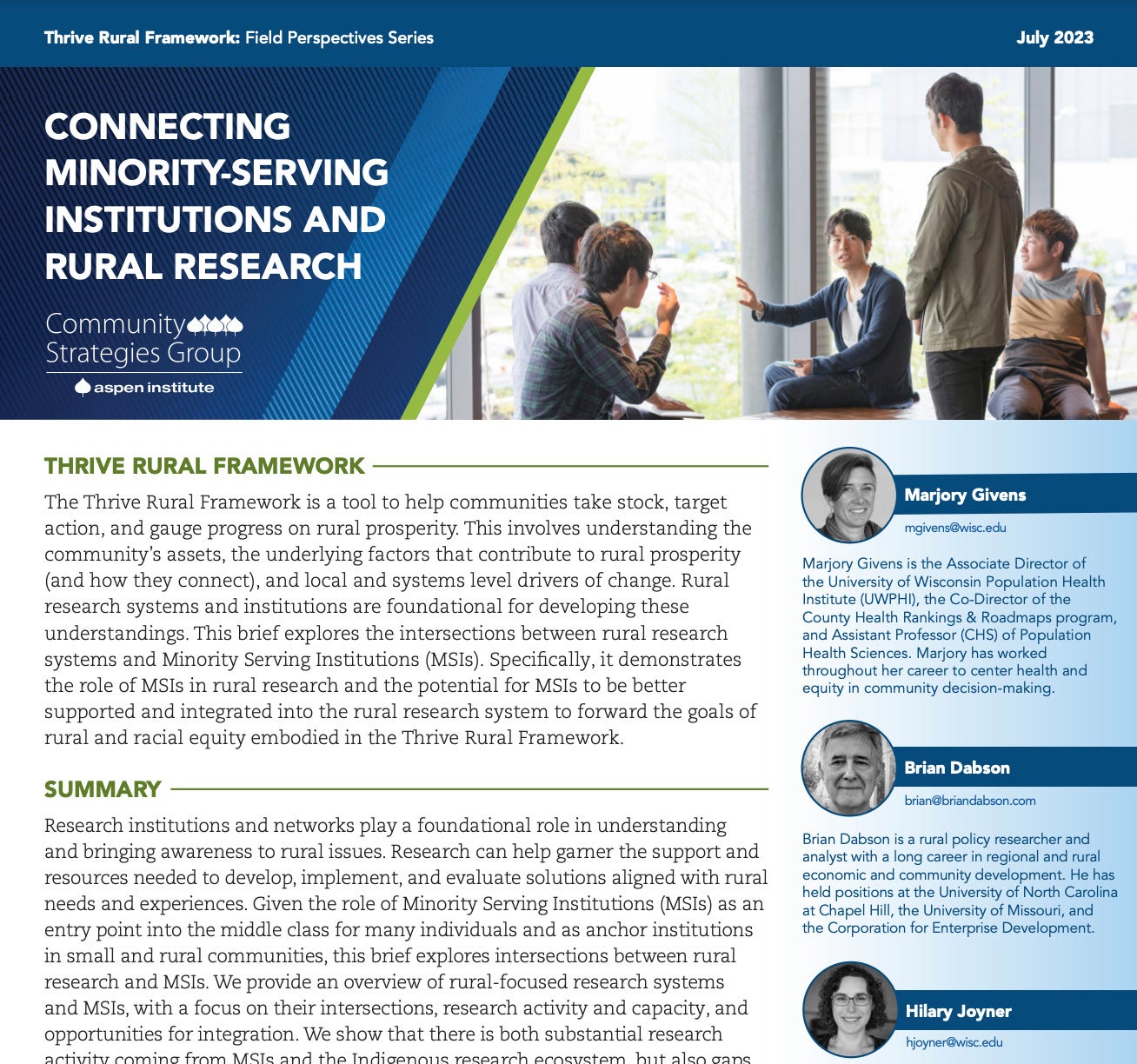The Aspen Institute Business & Society Program is proud to present the release of Charting a New Course. This toolkit combines two powerful resources: a curated selection of innovative courses that marry the liberal arts and business in coherent and robust ways, and step-by-step strategies to successfully advocate for curricular change. This document is both a reflection of dynamic debates about the liberal arts in recent years, and a bridge into an emerging future of work.
Facilitating forward movement is central to the design of Charting a New Course. The resources curated in this toolkit empower academic leaders to navigate beyond an either/or binary that often becomes an impasse for discussions about the future of higher education. Namely: the assumption that college education must be valued either as practical preparation for a career, or as development of critical thinking skills and creativity associated with a liberal arts education.
It’s a framing that has found newfound attention in the economic disruptions of the last decade, as the title of a 2009 New York Times article suggested: “In Tough Times, the Humanities Must Justify Their Worth.” A succession of pieces with titles like “Do Colleges Need French Departments?” (2010) and “Career-Oriented Education vs. the Liberal Arts,” (2013) illustrate how often debate has circled the same point. It continues to structure what remains a very live debate: in early 2018, plans at two US public universities to eliminate humanities offerings in favor of what proponents call more “career-oriented” programs garnered both national discussion and international coverage.
Six years ago, the Aspen Institute Business & Society Program launched the Aspen Undergraduate Consortium—to strengthen the contribution of the liberal arts to the professional preparation of future business leaders. Since that time, the 73 participating schools have generated much momentum and substantial changes on campuses. (See toolkit for a list of participating institutions). Today, conditions point to the next step of this work: sharing these resources to scale change.
Scale is the key word, because where business innovation reveals an emerging future of work, there are significant opportunities for liberal arts instincts come into view. The title of a 2016 Forbes article, “That ‘Useless’ Liberal Arts Degree Has Become Tech’s Hottest Ticket,” is representative of a veritable genre of business commentary that stresses the straightforward economic benefits of liberal arts education. At a time when companies are competing to become the most sought-after digital platforms, outside-the-box-thinking and creativity become bankable advantages. More recently still, businesses are discovering the very real risks of not keeping pace with evolving societal conversations. Technology titans face scrutiny on multifaceted questions ranging from content moderation to the use of personal data. Political backlash against globalization in its myriad forms has businesses worried about disruptions to trade and complex supply chains. Across industries, careers and investment shifted in response to the #MeToo movement. If there is a common thread in these stories, it is that progress for business—into new communication technologies, or into new markets—can create situations that feel unprecedented, making disciplines like history and philosophy indispensable guides.
There is significant opportunity for this work to scale. Today, one in five of undergraduates in the U.S. choose business as their college major. Taken together with the numbers of undergraduates pursuing business-related degrees at institutions without a business major, the study of business is to a significant degree the education of our citizenry. With a toolkit for change, academic leaders can leave the binary impasse of recent years firmly in the past, and align students with the opportunities of the new world of work.


